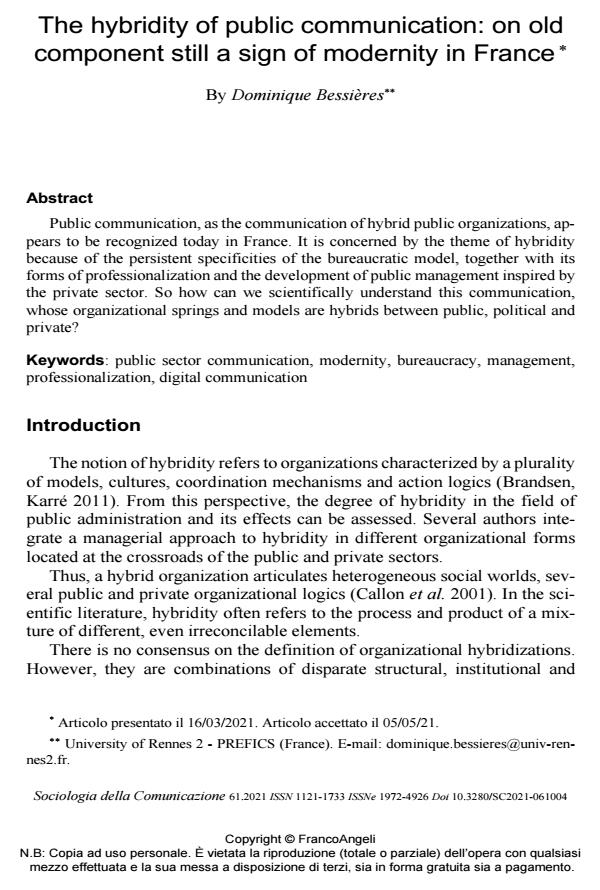The hybridity of public communication: on old component still a sign of modernity in France
Journal title SOCIOLOGIA DELLA COMUNICAZIONE
Author/s Dominique Bessières
Publishing Year 2021 Issue 2021/61
Language English Pages 16 P. 36-51 File size 327 KB
DOI 10.3280/SC2021-061004
DOI is like a bar code for intellectual property: to have more infomation
click here
Below, you can see the article first page
If you want to buy this article in PDF format, you can do it, following the instructions to buy download credits

FrancoAngeli is member of Publishers International Linking Association, Inc (PILA), a not-for-profit association which run the CrossRef service enabling links to and from online scholarly content.
Public communication, as the communication of hybrid public organizations, appears to be recognized today in France. It is concerned by the theme of hybridi-ty because of the persistent specificities of the bureaucratic model, together with its forms of professionalization and the development of public management inspired by the private sector. So how can we scientifically understand this communication, whose organizational springs and models are hybrids between public, political and private?
Keywords: public sector communication, modernity, bureaucracy, management, professionalization, digital communication
- Global Public Goods Communication Dominique Bessières, pp.41 (ISBN:978-3-031-90666-4)
- Towards a conversational public administration? Giulia Banfi, Marco Luca Pedroni, in RDBCI: Revista Digital de Biblioteconomia e Ciência da Informação /2025 pp.e026005
DOI: 10.20396/rdbci.v24i00.8680284
Dominique Bessières, The hybridity of public communication: on old component still a sign of modernity in France in "SOCIOLOGIA DELLA COMUNICAZIONE " 61/2021, pp 36-51, DOI: 10.3280/SC2021-061004